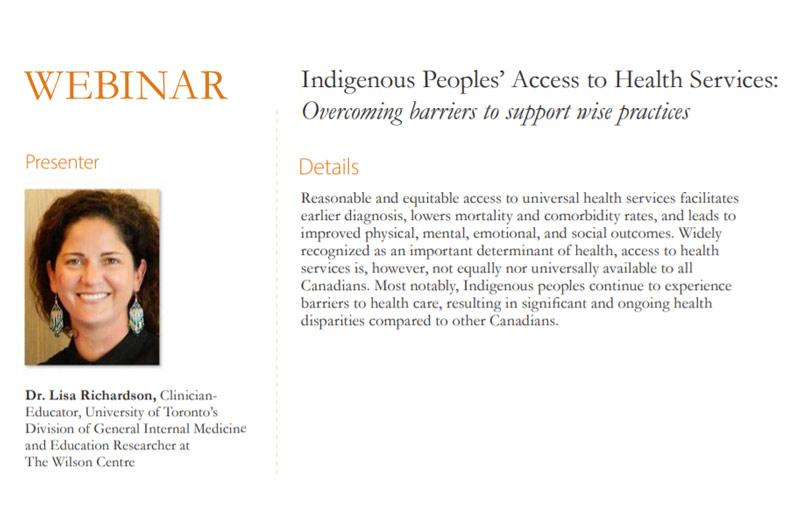The National Collaborating Centre for Indigenous Health (NCCIH) recently hosted a webinar called Indigenous Peoples’ Access to Health Services: Overcoming barriers to support wise practices.
The webinar, presented by Dr. Lisa Richardson, a Clinician-Educator with the University of Toronto’s Division of General Internal Medicine, explored Indigenous peoples’ access to health services, including experiences of colonization, “otherness,” and racism as both patients and providers. Dr. Richardson is also an Education Researcher at The Wilson Centre.
Access to health services is widely recognized as an important determinate of health. However, access to health services is not equally or universally available to all people in Canada. Most notably, Indigenous Peoples continue to experience barriers to health care, resulting in significant and ongoing health disparities compared to non-Indigenous people in Canada.
Dr. Richardson discussed how reasonable and equitable access to universal health services facilitates earlier diagnosis, lowers mortality and comorbidity rates, and leads to improved physical, mental, emotional, and social outcomes.
The webinar’s learning objectives were to:
- Examine how accessibility, availability, and acceptability of health services have indirect and direct impacts on Indigenous peoples’ health and health outcomes.
- Define “wise practices” and demonstrate its application in health care settings.
- Explore how the frameworks of cultural safety, anti-racist practice, and trauma-informed care can strengthen leadership skills and ultimately Indigenous health equity.
- Understand, recognize and identify opportunities to apply the concept of Indigenous allyship in leadership roles.
NH staff and physicians, and anyone who is interested, are encouraged to listen to this free webinar. It’s publically available on the NCCIH website, YouTube, and SoundCloud channels.














Comments